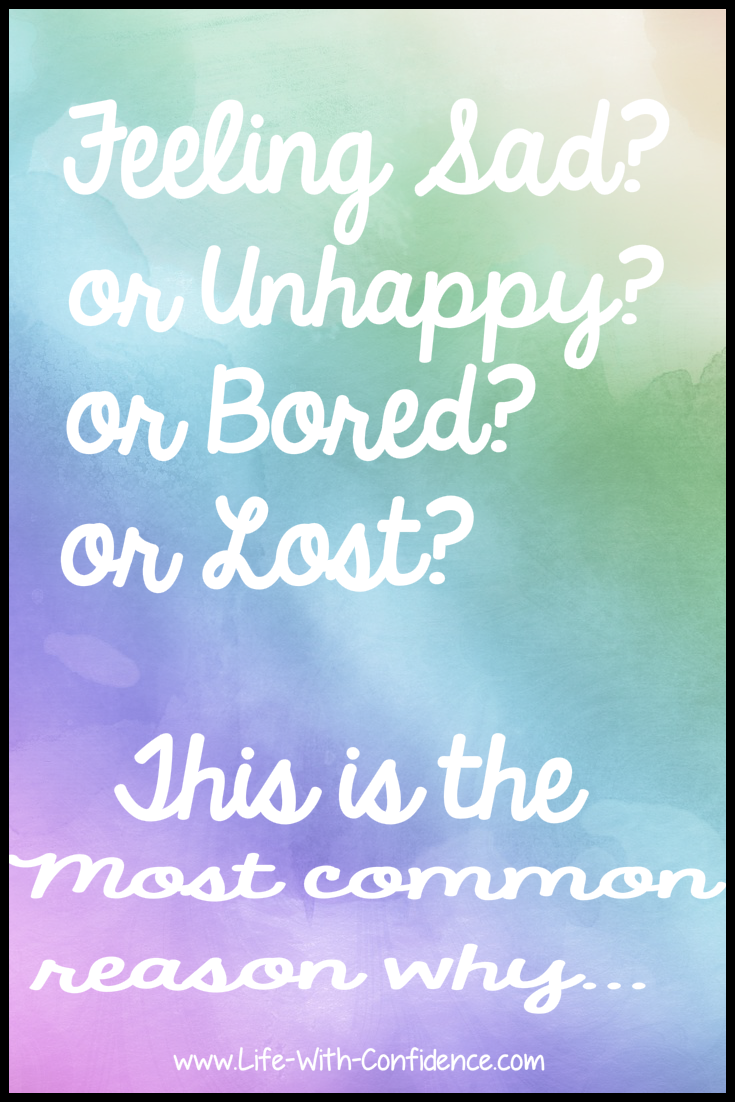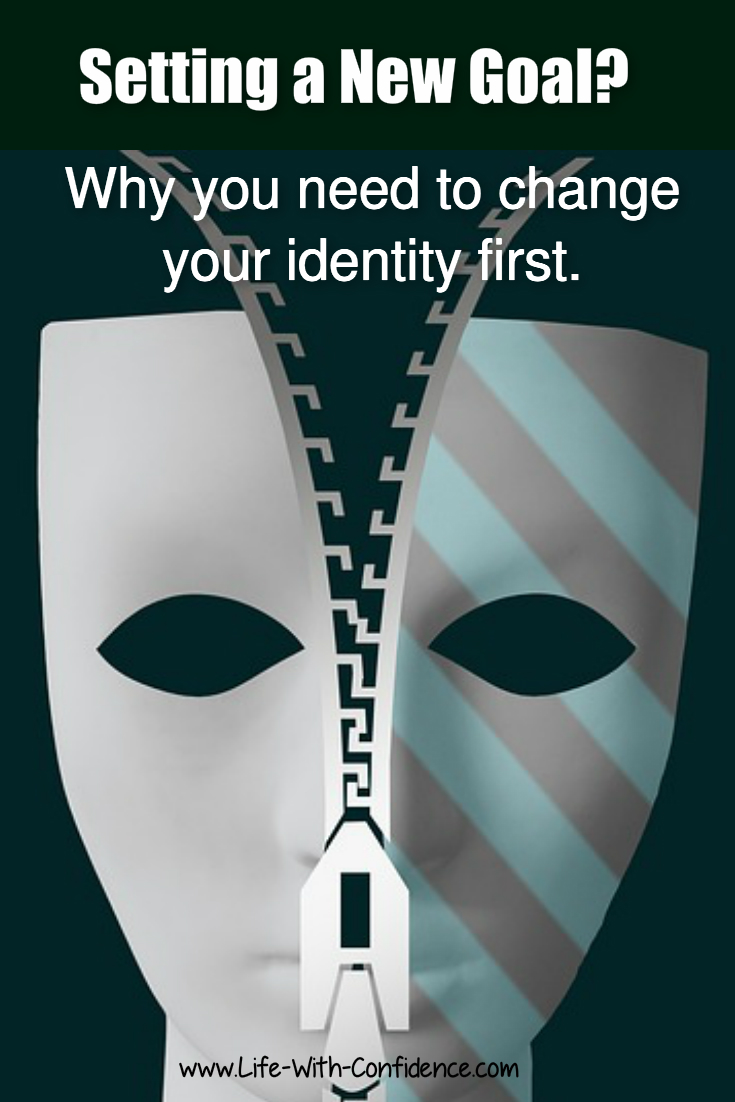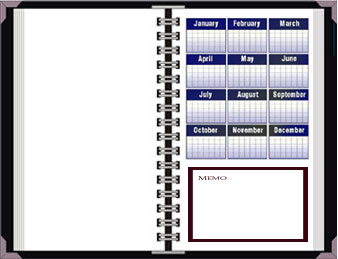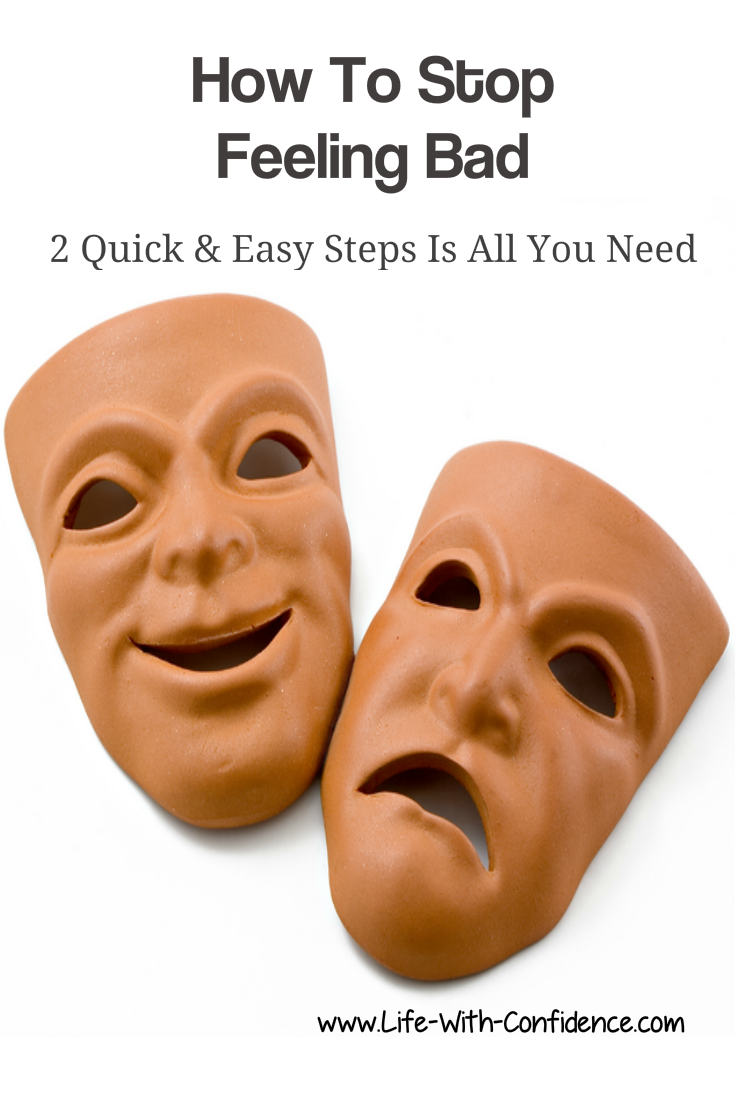The Key To Stop Feeling Sad and Unhappy
Why You Need a Life Purpose
Catherine Pratt
www.Life-With-Confidence.com
There can be times in your life when you suddenly feel sad or unhappy or bored or even lost and you don't know why.
On the surface, your life might seem great. You have a job, a nice place to live, friends and family. So, what's wrong? Why aren't you happy?
Well, the most common reason why is because you don't have a purpose in your life. We're not talking "Life Purpose" as in that big, scary concept of knowing from birth that you were meant to devote your entire life to saving the whales or something like that. No, it's much more simple than that.
Having a purpose in your life simply means working towards something you want to achieve. It could be learning a new language, visiting somewhere you've never been before, finding a new place to live, figuring out how to earn more money, improving your health, or even planning to become a parent. The key criteria is that it's something that's important to you and something you want to accomplish.
Without a purpose to your life, you will drift through life always feeling unsettled.
"Those people who never experience small victories fall into the opposite state of happiness called depression. Psychologists from the University of Liverpool have found that people with depression either don't have goals or their goals are so general that it is impossible to make regular progress towards achieving them." Andrii Sedniev
Questions To Ask Yourself if You're Feeling Sad and Unhappy
So, how do you know if your sadness is from having lost your sense of purpose? Simply ask yourself the following 3 questions. [Questions are from, Face It and Fix It: A Three-Step Plan to Break Free from Denial and Discover the Life You Deserve by Ken Seeley- Are you pursuing all – or at least some – of your dreams and ambitions?
- Do you feel your life is moving forward instead of just idling?
- Are you setting any plans in motion to improve your life?
If you answer "No" to any of these questions, then you need to find a sense of purpose in your life which is as simple as coming up with a positive goal for yourself.
Need To See Progress
If you've decided that yes, you've lost your sense of purpose and that's why you feel unsettled, figuring out what you want to start focusing on is just the first step. Along with deciding on a purpose, the other thing you need to do is to make sure you're constantly making gains towards your goal and you're able to clearly see that progress. Having a purpose won't work to cure you from feeling sad or unhappy if your goal is too general or too vague or if there's no way to tell if you're making positive steps towards it.
For example, if you made your purpose to "be a good friend", what does that mean to you? What would you do to show that? What results would you expect? How would you know if you were successful or not?
Your goal needs to be specific like, "I'll call (or email or visit) my friend at least once a week so we don't drift apart." Find a way to be specific about your purpose and also provide a time frame of when you hope to achieve the goal or how often you'll work on the goal (phone call once a week). It's also helpful to include the "why" behind your purpose, "so we don't drift apart".
Your purpose also needs to be realistic. Don't set yourself up for failure by planning something like, "I'll run a marathon this weekend even though I've never run a mile in my life." It's good to challenge yourself but make sure it's something you can achieve if you apply yourself.
Another tip when making your purpose is to make it something you have control over. Something like, "I'm going to win the lottery next week" also sets you up for failure because you have no power to influence that outcome.
A Resource For Learning About Life Purposes
An excellent book which discusses in depth how to create a life purpose is called The Achievement Factory: How to Fulfill Your Dreams and Make Life an Adventure by Andrii SednievAn interesting point he makes in his book is that people often think that they'll be happy once they achieve their goal. They feel that happiness won't be theirs until they're married, or have that new job, or have gotten the degree they want. He says that it's actually not true because once they accomplish the goal, the happiness doesn't last long because people are hardwired to always want more. "Remember that you are happy not because of what you already have achieved but from the progress you make towards a desirable goal." He says what really makes you happy is "measurable progress" towards something that inspires you.
It's a different way of thinking about happiness and goals. By looking at it this way you can see that it's important to keep track of your progress and to celebrate your successes along the way. Also, to make sure you always have something you're working towards to give you a sense of purpose and that you don't get lost in just completing day-to-day life activities.
"For happiness the nature of your goal doesn't matter, what matters is that you really want to achieve it and that you regularly make progress." Andrii Sedniev
Tips For Creating a Successful Life Purpose
- You need to be inspired by your goal. If it isn't something you really want to achieve then you won't feel any motivation or happiness from your progress or achievement
- Experiences will provide greater feelings of happiness and joy than obtaining physical possessions. Experiences also last longer than a possession.
- Live your life as an adventure story and be the writer of your own story. Don't just drift along. Make decisions as to what you want to achieve.
- Keep challenging yourself for continuous progress.
- Explore the world around you. Push past your comfort zone so you can experiment and experience the world in a completely new way.
- Don't let doubt or fear get in your way. Focus on the joy you'll feel when you accomplish your goal. Be aware if you have any doubts in relation to your goal. "The biggest reason why people fail is not their lack of abilities but their lack of belief in their abilities. No matter what you believe in, your brain will look for confirmations that you are right and will eventually find them." - Andrii quote
- Remember that "Your life is in your hands only and the only person who can make it either miserable or exceptional is you." Andrii quote
- Make a commitment to yourself that you will continue to work towards your goal even when it becomes difficult or you run into obstacles.
- Your purpose will change as you go along. You will also need to keep coming up with new purposes.
- Don't have too many purposes at one time but do try to have a purpose from each segment of your life: work, relationships with others (family and friends), health, and personal development (intellectually and spiritually).
- Realize that you will need to commit to achieving your purpose which means that you need to be ready to put in the required amount of time, money, and willpower in order to accomplish your purpose. Determine whether you want this purpose enough to commit to it. If not, choose a different purpose to go after.
- Celebrate your successes along the way so you can see how far you've come.
Summary
"When you don't have what you want or what you dream about, you feel discomfort" Andrii Sedniev
If you're feeling sad, unhappy, or even just blah about life then check and see if the reason is because you've lost your sense of purpose somewhere along the way. Take the time to make a list of all the things you'd like to achieve and then go through the process of seeing which ones inspire you the most and which ones are strong enough of a want for you to commit the time and effort needed to achieve them. Then start planning on how you'll approach your new purpose and watch how dramatically your life will change.
Giving yourself a sense of purpose can truly be life altering.
I'll leave you with one final quote to consider:
"Everyone needs something off on the horizon to strive for, but when we either reach or goals or lack the drive to have them in the first place, we lose our sense of purpose. Having nothing to strive toward creates a huge void that leaves many people turning to LIBs (life interfering behaviours like addictions, procrastination, etc) out of depression or simply boredom. Having something to look forward to is the key."
Face It and Fix It: A Three-Step Plan to Break Free from Denial and Discover the Life You Deserve by Ken Seeley (2009-05-05)<-- Back to All Articles
Further Reading
Related Articles
Setting A New Goal - Why You Need To Change Your Identity First
How To Be Happy
It sounds like such a simple thing, to be
happy. So, why does it seem to be such a struggle to accomplish
something that should be so basic and easy? Four points to consider when working on being happy.
Why am I so unhappy? It sounds so easy when people say "be happy". So, why is it so hard? Here's a different way of looking at it and what you can do about it.
Do You Know What Your Life Priorities Are?
They may not be what you think they are.
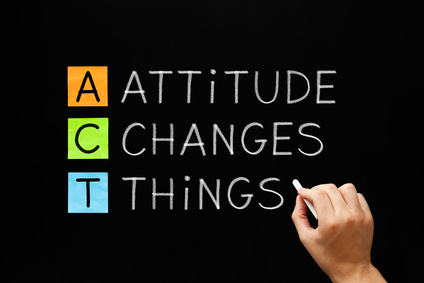
ACT stands for Attitude Changes Things and you may not realize how your own attitude is preventing you from achieving your goals.
All you have to do is remember two quick and easy steps to instantly change your mood.
EVEN MORE ARTICLES
You'll find lots more articles on the goal setting and life purpose page.

